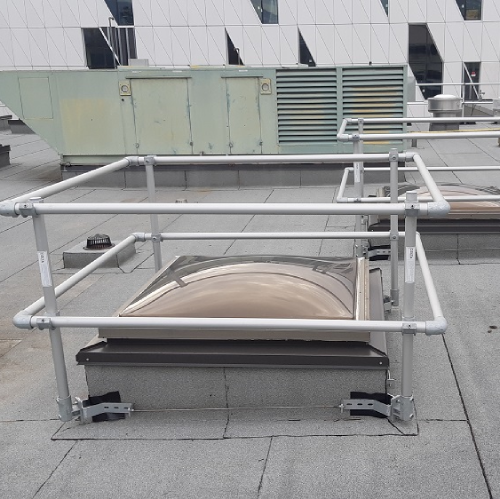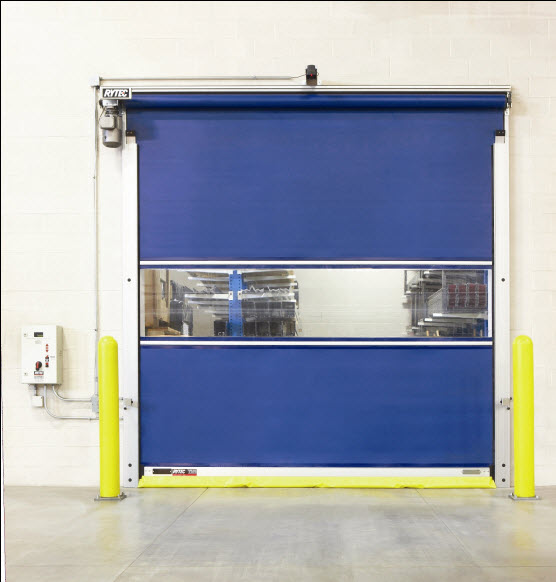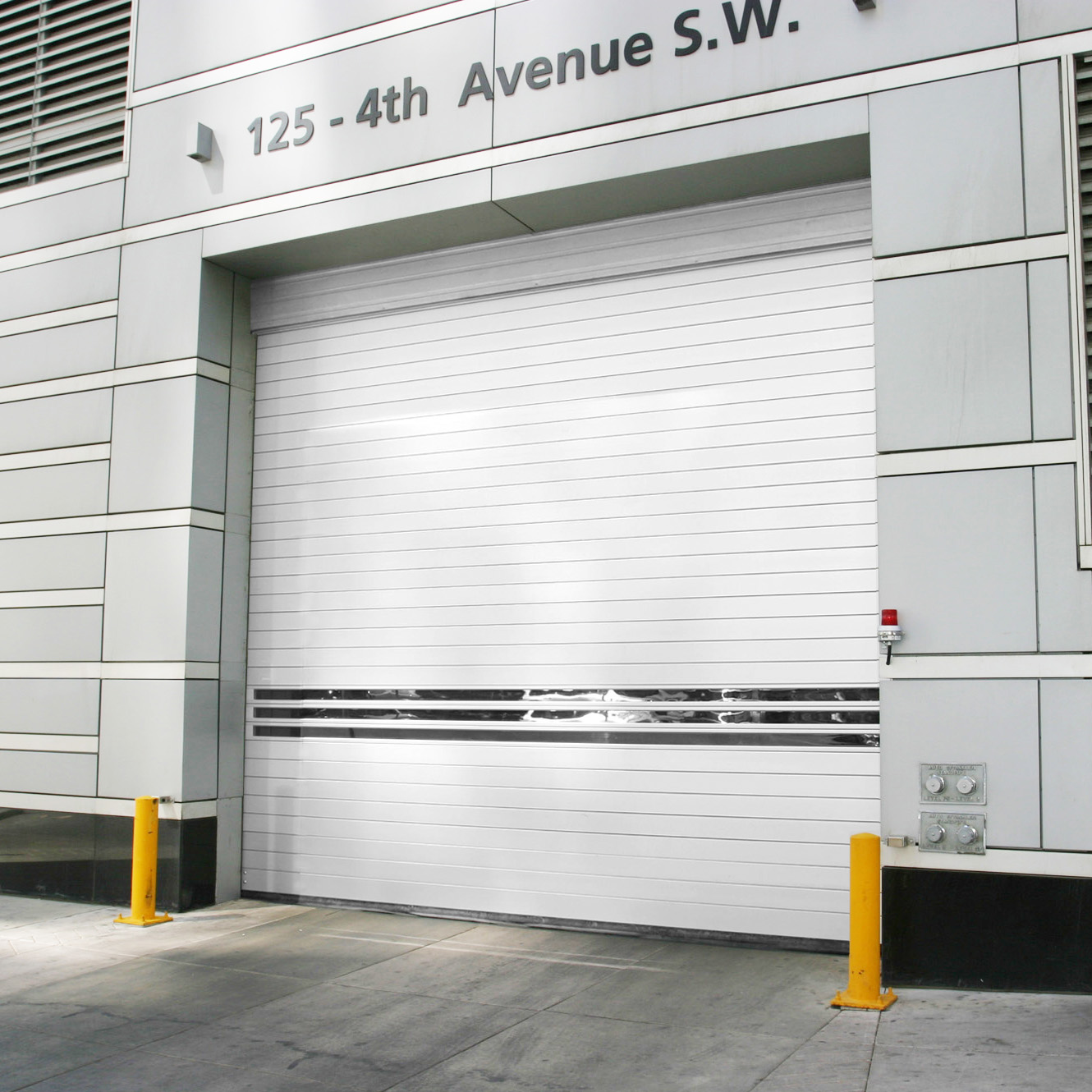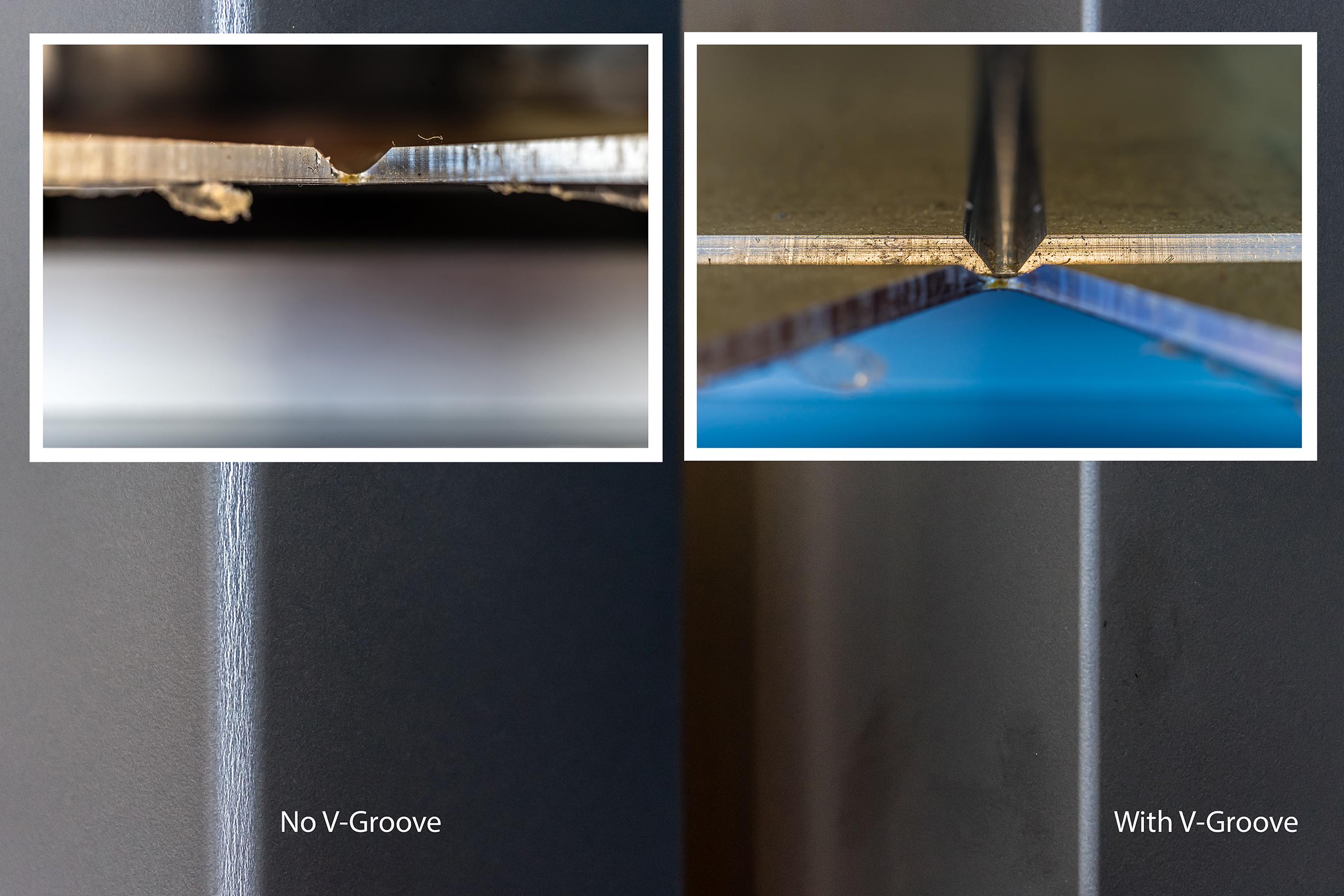Specifying the right grout for the project
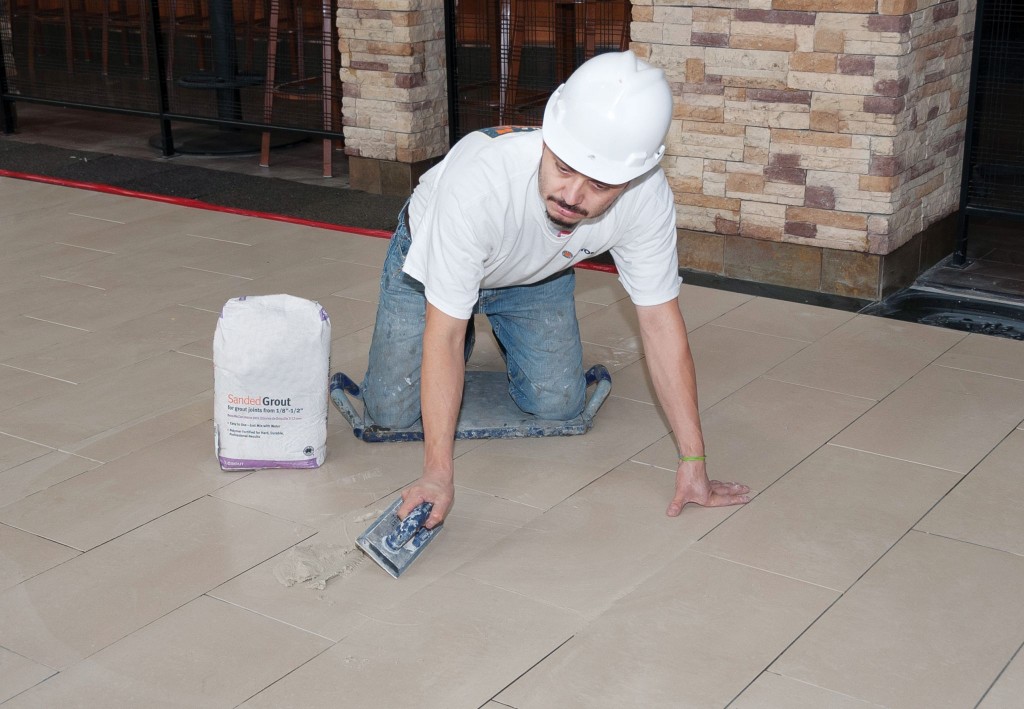
High-performance cement grouts were developed with improved curing technology and advanced polymers to minimize these issues. These products use unique cements, polymers, and modifiers that help complete the hydration process in a short time to develop hard, dense, and uniformly coloured grout joints. While specifying high-performance cement grout will eliminate many of the concerns of traditional cement-based grout, it is still porous and must be regularly sealed with a penetrating sealer to prevent staining by common household materials. High-performance cement grout is approximately twice the cost of its standard counterpart.
Since all cement-based grout is sensitive to acidic chemicals, they do not hold up well in environments exposed to strong chemicals or rigorous cleaning schedules. Developed to provide the required chemical resistance in demanding installations is 100 per cent solids epoxy grout. The TCNA Handbook defines epoxy grout as a grouting system employing epoxy resin and hardener portions, often containing coarse silica filler. These are formulated for industrial and commercial installations where chemical resistance is important.
The performance of epoxy grout is defined in ANSI A118.3, Chemical Resistant, Water Cleanable Tile-setting and Grouting Epoxy and Water Cleanable Tile-setting Epoxy Adhesive. These two- and three-component grouts are composed of water-cleanable epoxy resins, special hardeners (curing agents) and clean, graded aggregates. They do not contain volatile solvents or water and are considered 100 per cent solids. The epoxy resin binder in these grouts has more chemical resistance (primarily to acidic materials) than the more common cement grouts. Due to their ability to resist chemicals, epoxy grouts are commonly used in commercial applications routinely exposed to corrosive chemicals or foods for extended periods, such as commercial kitchens, dairies, and beverage bottlers.
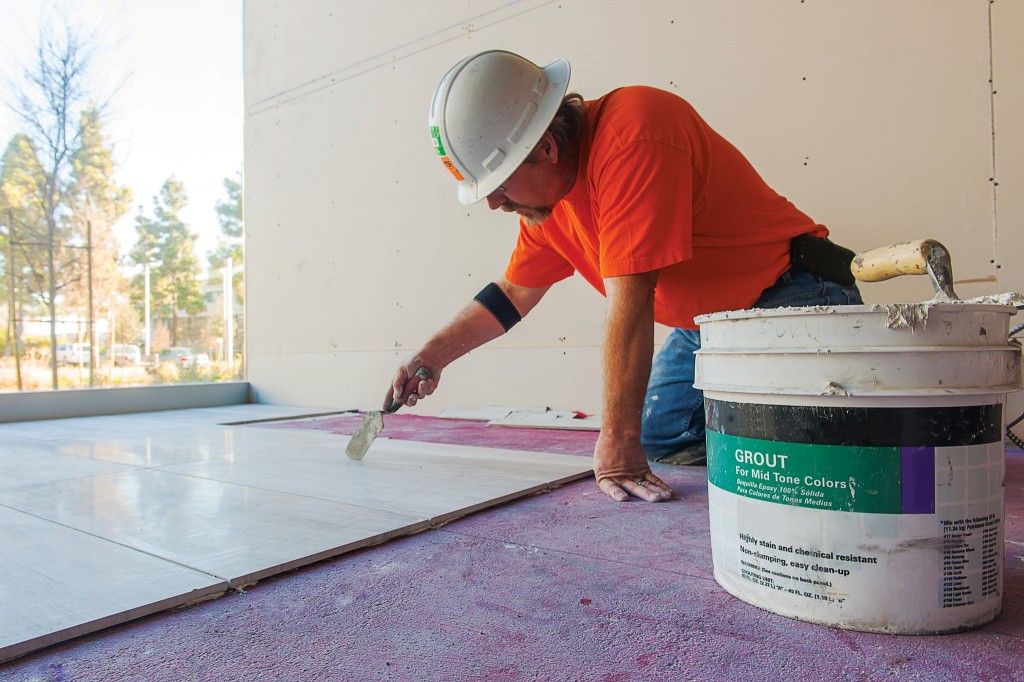
Since epoxy grouts eliminate many of the issues experienced with cement grouts and have stain-resistant properties, they have also found use in some non-commercial tile installations like residential kitchens and baths. Many installers remember when epoxy grouts were hard to spread and clean up. There have been considerable improvements to the formula and today’s epoxy grout is easy to use. While these grouts solve nearly all the concerns of cement-based grouts, they are expensive and can run 10 times the cost of a standard cement grout.
According to the TCNA Handbook, epoxy emulsion grout is a grout system employing epoxy resin and hardener portions, both of which contain additional water to form an emulsion. The coarse sand filler portion also contains portland cement and this grout meets the performance of ANSI A118.8, Modified Epoxy Emulsion Mortar/Grout. Epoxy emulsion grouts are a hybrid of the 100 per cent epoxy grout and the portland cement grout. Generally, they cost less than a 100 per cent epoxy grout because they are extended with water. These grouts rely on the hydration of the portland cement in addition to the cured epoxy resin for their ultimate strength. However, because performance depends on the hydration of the portland cement, they can be prone to the same issues plaguing standard cement grouts. They are still somewhat porous and can be stained when exposed to common household materials. At one time, these were preferred for bonding ceramic tile to plywood, but with the development of polymer-modified cement mortars, they are rarely used for this purpose and are not readily available. Today, few epoxy emulsion grouts can be found on the market, as they have been replaced with easier-to-use 100 per cent solids epoxy grout, higher-performance cement grout, and recently developed premixed grout.

